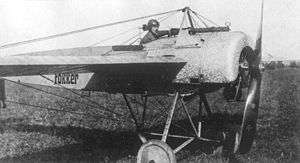Engine turning

.jpg)
Engine turning, also known as jeweling, is a fine geometric pattern that can be inscribed onto metal as a finish. Aluminium is often the metal chosen but any metal can be finely machined to produce intricate repetitive patterns that offer reflective interest and fine detail.

Perhaps the most recognizable example of engine turning is on the sheetmetal panels comprising the engine cowling (nose) of Charles Lindbergh's aircraft, the Spirit of St. Louis. In the 1920s and 1930s, automobile parts such as valve covers, which are right on top of the engine, were also engine-turned. Similarly, dashboards or the instrument panel of the same were often engine-turned. Customizers also would similarly decorate their vehicles with engine-turned panels.
Engravings produced by engine turning are often incorporated into the design of bank notes and other high-value documents to make production of forged copies difficult. The resulting graphics are called guillochés.
The sheet metal parts of the World War I Fokker Eindecker fighter aircraft series, especially around the engine cowl and associated sheetmetal, are noted for having a "dragged" form of engine turning entirely covering them. The tool creating the "swirls" was repeatedly moved along a short irregular path each time while pressed against the metal, to create the intricate appearance that was characteristic of the aircraft's sheet-metal parts, and is partly surmised to have been a mechanical method to "clad" a duralumin-alloy sheet-metal panel with a layer of pure aluminum, for corrosion protection.[1]
See also
References
- ↑ "Fokker Engine-Turned Cowls". theaerodrome.com. theaerodrome.com. October 22, 2007. Retrieved October 10, 2013.
| Wikimedia Commons has media related to Engine turning. |